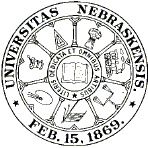
University Studies (University of Nebraska) (1888–1984)
Date of this Version
1933
Citation
UNIVERSITY STUDIES VOLS. XXXII-XXXIII 1932-1933
Abstract
During the span of years reaching from the mid-sixteenth to the mid-seventeenth centuries, related forces persisted which gave to the voyage-literature of that day a distinctive pattern, both in thought and in form. Between 1660 and 1732 other forces began to act; and the result was an altered pattern. This change was due principally to the impetus which experimental science received during !the last half of the seventeenth century. The age which saw the rise of the Royal Society, the publication of Newton's Principia and Locke's Essay, the age, in other words, which conceived the world of nature and of man as machine-like in its construction, governed by laws discoverable by man and, when known, immeasurably conducive to his advantage,-this age raised the average traveller to an eminence he had never before enjoyed. When the inductive method arose to prominence and "collecting" became the rage, he, beyond the generality of mankind, possessed the advantage of being able to observe natural phenomena wherever they were to be found. That he was aware of this important role is indisputable. The Royal Society, once clear as to its purpose, realized that the English voyager, if educated to the seriousness of his task, would prove a valuable helper. The Society had hardly got under way when there appeared in its Transactions a most interesting document. It bore the title "Directions for Seamen, bound for far Voyages." Without preliminary, it stated, for the benefit of travellers on "far Voyages," the aim of the Society, which, it averred, was "to study Nature rather than Books, and from the Observations, made of: the Phaenomena and Effects she presents, to compose such a History of Her, as may hereafter serve to build a Solid and Useful Philosophy upon."
Included in
European History Commons, History of Science, Technology, and Medicine Commons, Intellectual History Commons


Comments
PUBLISHED BY THE UNIVERSITY 1934